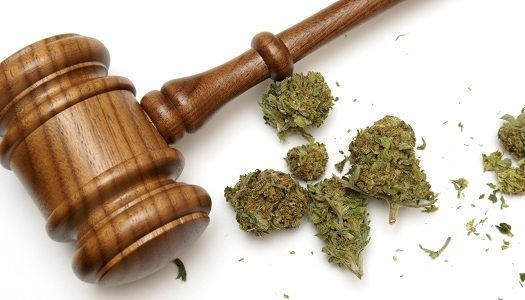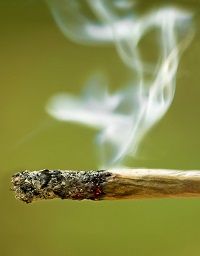Neurobiologist Cautions that Marijuana Legalization Has Outpaced Science
Medicinal marijuana initiatives were approved in some capacity in 28 states and DC.

The medical use of marijuana is a controversial topic. Some researchers believe that marijuana could help reduce use of potentially addictive opioids, but others fear there is too little evidence yet.
Yasmin Hurd, PhD, a neurobiologist at Mount Sinai in New York, New York, has some thoughts on both sides of the argument over whether the medical use of marijuana should be expanded. Replacing opioids with cannabis has potential, she said. Cannabinoids (the active compounds in marijuana) and opioids, like oxycodone and morphine, alter perception of pain in the brain. However, the two target different parts of the brain and cause different communication between neurons.
“If you look at both drugs and where their receptors are, opioids are much more dangerous in part because of the potential for overdose,” Hurd, the Ward-Coleman Chair of Translational Neuroscience at the Icahn School of Medicine at Mount Sinai, said in a news release.
A 185-person study in March 2016 reported an average 64% decrease in opioids with the use of medical marijuana. It also found an increase in quality of life and less side effects with cannabis when compared with other medications. Other studies have shown similar benefits, but more evidence is needed before marijuana-prescribing becomes an adapted practice.
“The opioid receptors are very abundant in the brain stem area that regulates our respiration so they shut down the breathing center if opioid doses are high,” Hurd continued. “Cannabinoids do not do that. They have a much wider window of therapeutic benefit without causing an overdose in adults.”
Medical marijuana access differs among the states, while prescription pain drugs are available nationwide.
Alaska, Oregon, and Washington were the first states to pass medical marijuana initiatives in 1998. But there haven’t been nearly as many clinical trials involving marijuana as there have been for prescription drugs. One factor in prescription drug use is that patients and physicians trust them. Although potentially addicting, these prescription drugs have been through years and years of testing for efficacy and safety.

Marijuana, on the other hand, doesn’t have that history. In fact, voters in 28 states and the District of Columbia (DC) have passed medical marijuana initiatives out of beliefs based largely on “anecdotal reports and lobbying efforts by a growing marijuana industry,” Hurd said. Politicians and the general public are making decisions on something that should be approved or rejected by physicians and scientific evidence, she added.
Pediatric exposure is another barrier to cannabis being more widely accepted for medicinal purposes. A JAMA Pediatrics study published last year drew attention to a sharp increase in accidental pediatric overdoses from marijuana, including edible products, in Colorado.
More recently, a 294-person study found that smoking pot before age 17 damages cognitive test scores.
Regardless of these findings, other research suggests cannabis has therapeutic properties—which is why physicians and general public have to be open to the idea, Hurd said. However, clinical trials are an irreplaceable component on making educated decisions.
“Clearly, the legalization of marijuana has outpaced the science. But if we want to be able to accurately say something is medical marijuana, we have to prove that it is, indeed, medicinal,” Hurd concluded.
The review, “Cannabidiol: Swinging the Marijuana Pendulum From ‘Weed’ to Medication to Treat the Opioid Epidemic,” was published in Trends in Neurosciences. The news release was provided by Mount Sinai.
Related Coverage:
Hold Off on Pot Before Age 17, Study Says
Marijuana Access In the United States: It’s a Mixed Bag
Telemedicine Can Successfully Help More Patients with Opioid Use Disorder